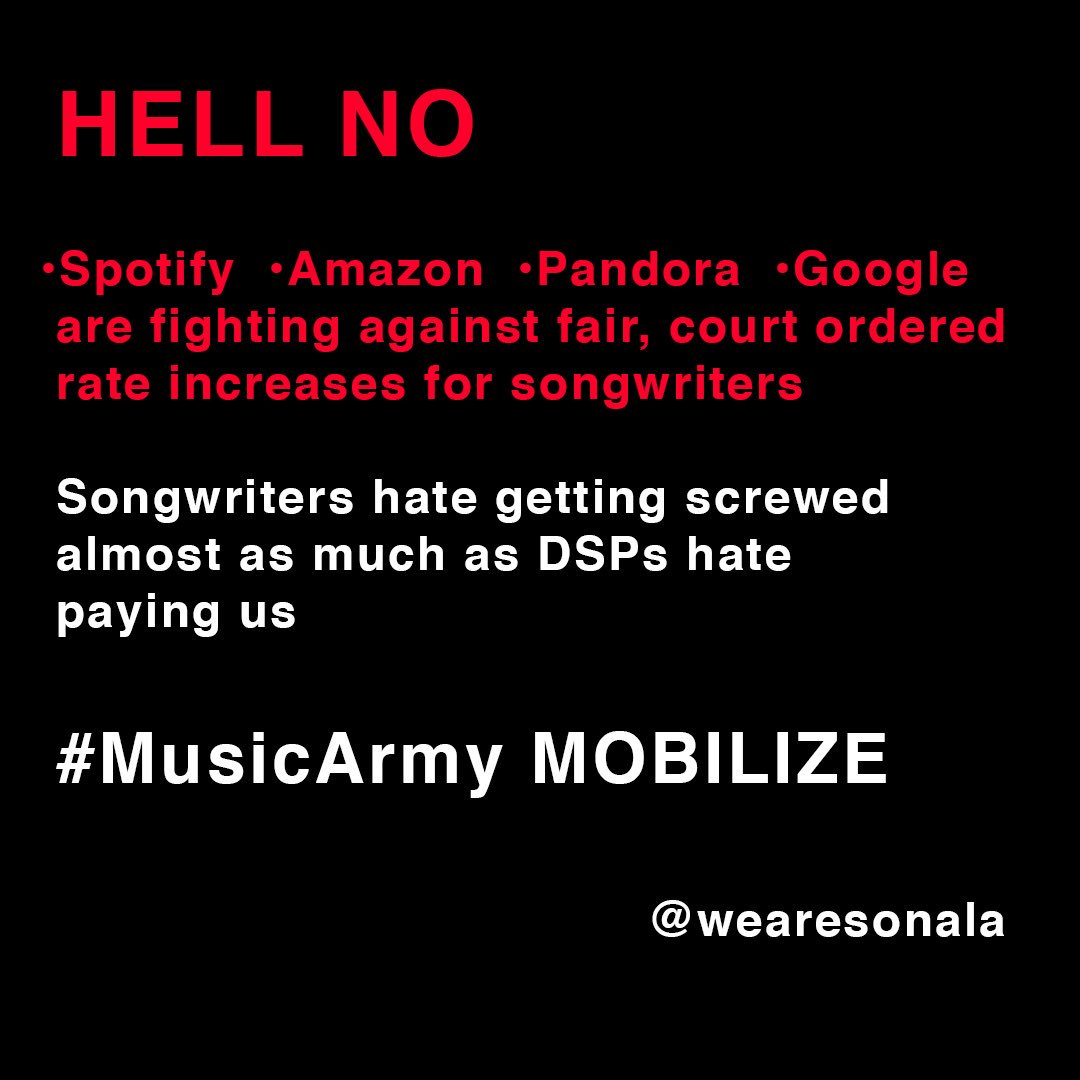__________________________
Guest post by James Shotwell of HaulixFollowing an appeal to stop mechanical royalty rates from rising, Spotify’s latest bundle threatens to take even more money away from artists.
Spotify made headlines this week by announcing Spotify Premium now includes a free subscription to Hulu’s ad-supported plan. The new perk is available now to new and existing subscribers alike, but not everyone is thrilled with the news.The streaming giant has been battling a string of negative press since coming out against new royalty rates set by the Copyright Royalty Board (Spotify). Spotify was not alone in appealing the ruling, which plans to raise mechanical royalty rates by 44% over the next four years, but the company made matters worse for itself after posting a blog in defense of their decision. “Does Spotify think songwriters deserve to be paid more?” the post asks. “Yes — this is important to songwriters and it’s important to Spotify. The industry needs to continue evolving to ensure that the people who create the music we all love — artists and songwriters — can earn a living. The question is how best to achieve that goal.”As we covered last week, the new CRB ruling aims to raise the value of a song from $0.003 per stream to $0.004, but Amazon, Spotify, Pandora, and Google disagree.In its blog post, Spotify said it is generally supportive of a 15 percent rate, provided the rates cover what it calls the “right scope of publishing rights,” including those for videos and lyrics. Spotify argues that the CRB’s decision limits the type of non-music offerings it can present to potential subscribers.“A key area of focus in our appeal will be the fact that the CRB’s decision makes it very difficult for music services to offer ‘bundles’ of music and non-music offerings,” the company said. “This will hurt consumers who will lose access to them. These bundles are key to attracting first-time music subscribers so we can keep growing the revenue pie for everyone.”The music industry, however, is not buying Spotify’s claims.David Israelite, the CEO and president of the National Music Publishers Association, cut straight to the chase on Twitter by saying that it was a “big mistake” for Spotify to “try to deceive songwriters and artists” with the blog post.In its blog post, Spotify said it is generally supportive of a 15 percent rate, provided the rates cover what it calls the “right scope of publishing rights,” including those for videos and lyrics. Spotify argues that the CRB’s decision limits the type of non-music offerings it can present to potential subscribers.“A key area of focus in our appeal will be the fact that the CRB’s decision makes it very difficult for music services to offer ‘bundles’ of music and non-music offerings,” the company said. “This will hurt consumers who will lose access to them. These bundles are key to attracting first-time music subscribers so we can keep growing the revenue pie for everyone.”Many in the music industry were quick to argue against the company’s claims. David Israelite, the CEO and president of the National Music Publishers Association, said on Twitter that it was a “big mistake” for Spotify to “try to deceive songwriters and artists” with the blog post.“I didn’t think Spotify could sink much lower — but they have,” he said. “This statement is one giant lie. I’m sure a PR team spent a great deal of time and energy crafting a statement to try to deceive artists and songwriters. They must think artists and songwriters are stupid. They are not. The CRB ordered a rate increase for songwriters. Spotify is against it. It really is that simple.”Songwriters of North America (SONA) seconded Israelite’s comments by saying that Spotify, along with Amazon, Pandora and Google, who are also appealing the CRB rates, are clearly in the wrong.




